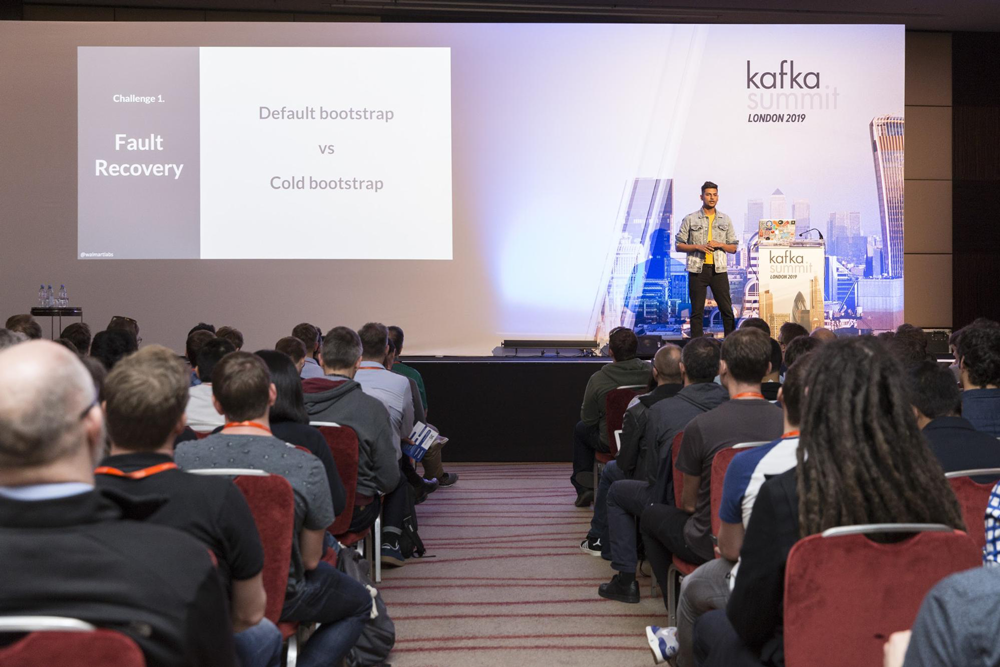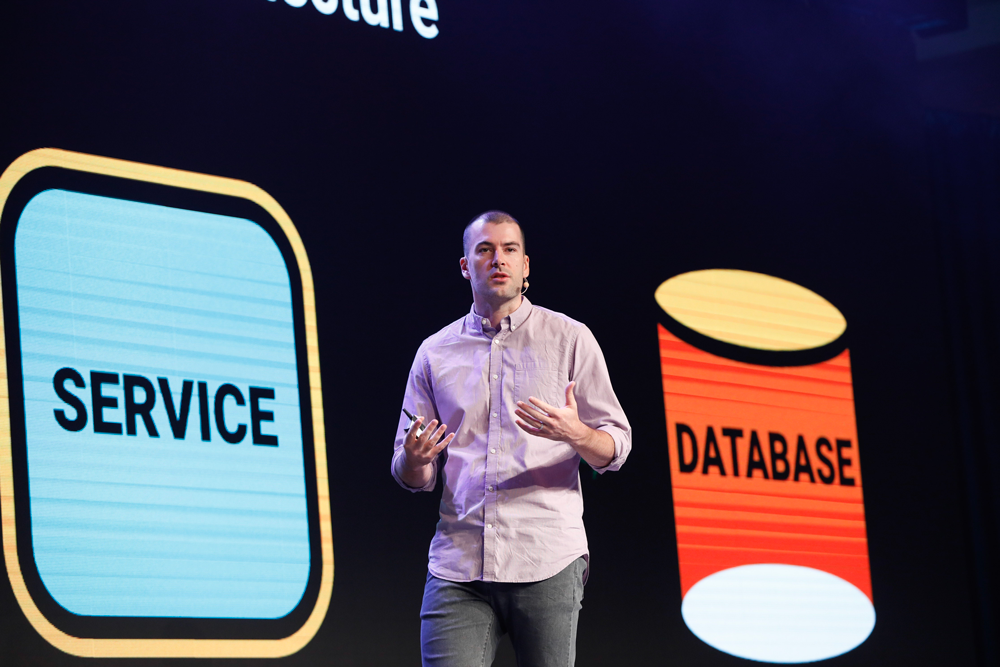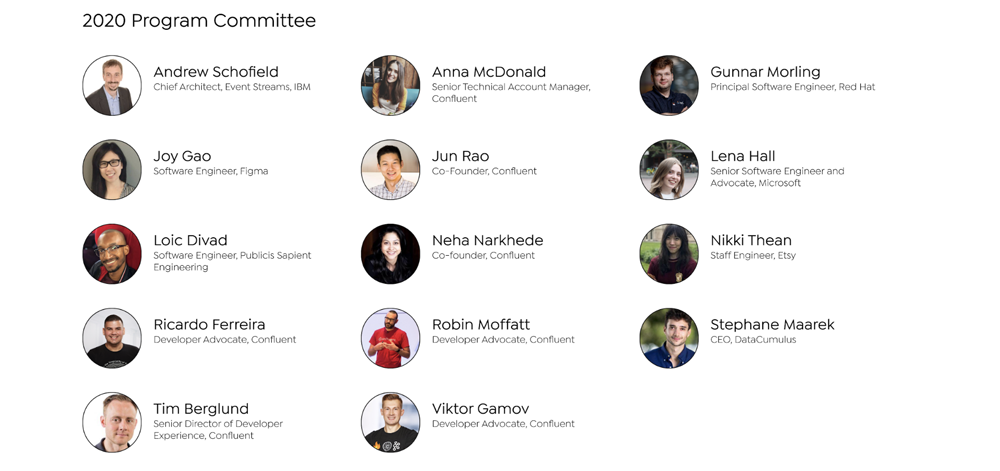[Webinar] AI-Powered Innovation with Confluent & Microsoft Azure | Register Now
Kafka Summit London 2020 Agenda, Keynotes, and Other News
Do you make New Year’s resolutions? The most I personally hear about them is people making a big show about how they don’t do them. And sure enough, I don’t either, but maybe you do. For example, maybe you made a New Year’s resolution to learn Apache Kafka® better. As resolutions go, that would be a good one. I would encourage that kind resolution.
And if you did…how’s that resolution going? Do you need some help? Well, you’re in luck, because I have just the thing for you: Kafka Summit London. It’s coming up on April 27th and 28th, and we are just now ready to announce the agenda.
Simpler tracks, all good
In the past, we’ve organized content into themed tracks, like Use Cases, Stream Processing, Event-Driven Development, and Core Kafka. I realized this actually gets in our way of selecting all the best and only the best submissions, since the interests of the community are not evenly allocated along whatever track boundaries we want to impose in any given year. We still have 56 sessions spread over four tracks, but the tracks just have numbers, not themes. This let us pick the highest-rated talks across the whole program without trying to find a certain number of use cases, or even-driven development talks, or the like.
And we didn’t make this change in a vacuum! Here is the Highly Scientific Twitter Poll I took to validate this approach:
A question for you, friends. When you’re attending a technology conference, do defined track themes help you think about content, or do you just look at what’s happening in a slot and pick something? RT this if you don’t terribly mind…
— Tim Berglund (@tlberglund) January 14, 2020
Confidential to the 22.2% of you who like tracks: we have tags. Each speaker has had the opportunity to add appropriate tags to their talk, so you’ll have an easy way of seeing what subjects each session intends to cover. (Not that reading the abstract was all that hard, but hey, tags often make more sense than categories anyway.)
Given this change, maybe you’re wondering where to start and how you can go about picking the right talks for you. Might I suggest some as a start? Here are a few that I’m especially looking forward to and highly recommend checking out:
- Confluent’s Anna Povzner will bring us Sharing is Caring: Toward Creating Self-Tuning Multi-Tenant Kafka, a talk containing lessons she has learned while helping build Confluent Cloud, a fully managed Kafka service. Dr. Povzner’s talk had the highest rating from the program committee, and she is an accomplished engineer and communicator, so this should be good.
- Object Partner’s Neil Buesing will share Synchronous Commands over Apache Kafka, which digs into a perennial problem that arises when building asynchronous systems: what do you do about things that are fundamentally synchronous and resistant to refactoring to any other state? This is a very important tool to have in your architectural toolbox.
- Returning Summit speaker Kate Stanley of IBM will present Reacting to an Event-Driven World, which will apply the principles of The Reactive Manifesto to Kafka-centric architectures. This kind of talk—one that explains how event streaming impacts software architecture in a broad way—is one we’re trying to encourage a lot more at Summit.
- Confluent’s Anna McDonald will be presenting Choose Your Own Topology, A Kafka Streams Adventure. Anna is a technical account manager, where she helps people solve real-world problems with Kafka. She is a popular speaker from past Summits, and we’re happy to have her back. Also, the program committee would like to make it clear that it harbors no bias in favor of people named Anna.
- ThoughtWorker and Kafka community stalwart Simon Aubury joins us with KSQL-ops! Running ksqlDB in the Wild. It’s one thing to understand the fundamentals of ksqlDB, but what’s it like to deploy it to production? To use it for rapid prototyping? For multi-skilled teams to adopt it? Simon will share his experiences in this important talk.

Keynote speakers
We’ve also got two keynotes to offer: one from Jay Kreps and another from Sam Newman. Each of these leaders has been influential in shaping the worlds of Apache Kafka and distributed systems today, and we are excited to be hearing from them about what they’re thinking and what they think is next. It’s a bit early for me to tell you too much about what’s in those keynotes, but if you know these two speakers, you know enough to know you want to hear them.

It is my privilege to work alongside the Kafka Summit Program Committee, many of whom have joined this year and have spent hours reviewing and rating abstracts. I’d like to thank them for all their hard work in curating a fine agenda and for making this exciting event possible. By name, they are:
- Andrew Schofield, Event Streams Chief Architect, IBM
- Joy Gao, Software Engineer, Figma
- Ricardo Ferreira, Developer Advocate, Confluent
- Anna McDonald, Senior Technical Account Manager, Confluent
- Loïc Divad, Software Engineer, Publicis Sapient Engineering
- Viktor Gamov, Developer Advocate, Confluent
- Gunnar Morling, Principal Software Engineer, Red Hat
- Jun Rao, Co-Founder, Confluent
- Lena Hall, Senior Software Engineer and Advocate, Microsoft
- Robin Moffatt, Developer Advocate, Confluent
- Nikki Thean, Staff Engineer, Etsy
- Stephane Maarek, CEO, DataCumulus
- Tim Berglund, Senior Director of Developer Relations, Confluent
- Neha Narkhede, Co-founder, Confluent

What are you waiting for?
Register for Kafka Summit London today with the code KSL20Blog to get 30% off.
If you can’t make it to London, there is another chance to attend or present at a summit later this year. The Kafka Summit Austin call for papers is now open, and we encourage you to submit a talk. For help with crafting something, feel free to share your idea in the #summit-office-hours channel on the Confluent Community Slack to get feedback. And more importantly, if you want tips on how to write a winning abstract, please watch the video below for some tips on how to make your submission stand out:
We’d love to hear from you!
Did you like this blog post? Share it now
Subscribe to the Confluent blog
Highlights from Confluent AI Day 2024
Catch up on AI Day’s Keynote; AI Accelerator launch; panel discussion with Anthropic, AWS, MongoDB, Reworkd, and Confluent; GenAI RAG workshops; and a hackathon with a GenAI app showcase. Watch the full livestream on demand.
Discover the Future of Data Streaming with Confluent at AWS re:Invent 2024
Join Confluent at AWS re:Invent 2024 to learn how to stream, connect, process, and govern data, unlocking its full potential. Explore innovations like GenAI use cases, Apache Iceberg, and seamless integration with AWS services. Visit our booth for demos, sessions, and more.

